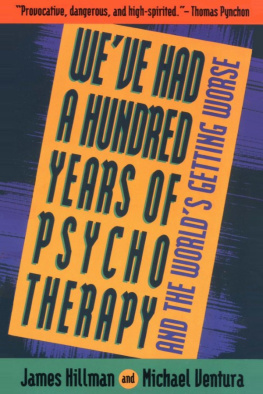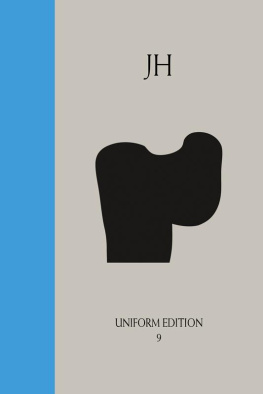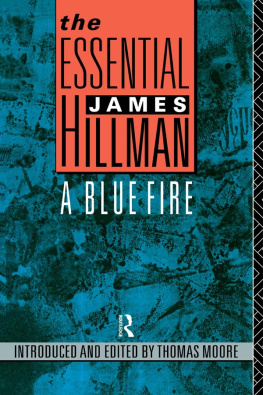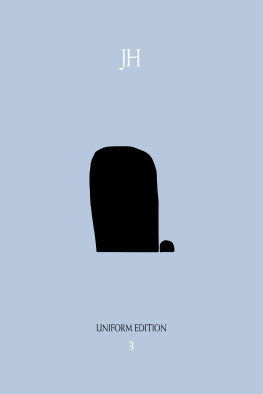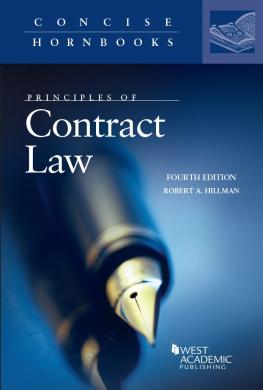Preface
T he genesis of this book can he told in a short series of thats: that the psychologist James Hillmans work (especially his book The Dream and the Underworld ) influenced, instigated, and haunted my thought long before we started crossing paths at various conferences and lectures; that one day I was talking about Hillman to Kit Rachlis, the editor of the L. A. Weekly , and that Kit was so intrigued he suggested I do a cover-story interview with Jim; that the cover-story (which, in extended form, is now Part One of this book) was widely and strenuously discussed up and down the town; and that, on the strength of this reaction, we decided to make a book.
We wanted an informal, wild, even funny book about therapy, a book that takes chances, breaks rules, runs red lights. To do this, we decided to stick to spoken, friendly (and hence irreverent) speech, and the conversational prose of letters. Why? Because psychotherapy wants and demands to be questioned, even attacked, in the form it prefers: staid, contained, well-behavedin other words, like any established institution, the psychotherapy industry wants to be addressed in a manner that accepts its basic codes of conduct, and therefore, by implication, its basic goals , of conduct. But if you fall for that, then instead of questioning those codes and goals, perhaps youre accepting them more than you know, reinforcing them by playing by their rules.
Thats no way to begin a breakthroughthe breakthrough in which, as James Hillman suggests here, the consulting room becomes a cell of revolution, a means to change not only oneself but ones world. So we chose another route, and made the book you hold.
Michael Ventura
Los Angeles
1991
T wo men are on an afternoon walk in Santa Monica, on the Pacific Palisades. They are walking in a direction Californians always call north because it follows the coastline up on the map; actually, the coast bends sharply here and theyre heading due west. Thats worth mentioning only because its the sort of detail that would interest these men, and, if it catches their attention, theyll talk about it, digress about it, and even attach a great deal of significance to itpartly just for fun and partly because thats how they are.
The two men began their walk on the Santa Monica Pier, with its rundown carnival air, where the affluent and the homeless pass among each otherand among Latinos from East L.A. and the new Central American ghettos; blacks from South Central; Asians from Chinatown, Koreatown, and the Japanese enclaves; pale whites from Culver City and North Hollywood; tan, svelte whites from West L.A.; old people of all descriptions and accents; and tourists from everywhere. The poor fish for food off the pier, though signs in English and Spanish tell them its dangerous to eat their catch. The beach is often closed from sewage spills. But the ocean doesnt show its filth, it looks as lovely as always, and its anywhere from ten to thirty degrees cooler at the Pacific than even just a few miles inlandso everybody comes.
The two men have walked the steady incline up the Palisades, along the cliffs overlooking the Pacific Coast Highway and the sea, and, at the far end of the park, where the cliffs are highest and there arent so many people, theyve sat down on a bench.
The men are James Hillman and Michael Ventura. Hillman is in his midsixties, tall and slender. Though born Jewish in Atlantic City he carries himself like an old-timey New Englander, with that Yankee sense of tolerant but no-nonsense authoritysoftened somewhat by the eagerness of his interest in whatever and, usually, whoevers around him. Ventura is in his midforties, shorter, darker, and scruffier than Hillman. He wears the kind of hat men wore in 1940s movies and a good but battered set of cowboy boots, and he gives the impression of trying to balance between these incongruities. Hillman is a psychoanalyst, author, and lecturer; Ventura is a newspaper columnist, novelist, and screenwriter.
Ventura carries a small tape recorder, and when hes with Hillman these days its almost always on, even when theyre walking or driving. Their conversation has a theme: psychotherapy. And it has something like a form: each man is to push the other not to make more sense but to get further out in his thinking. And their conversation has an ambition: that their talks and, later, their letters will make a book, an informal but (they hope) fierce polemic to give psychotherapy a shake. For they share the conviction that psychotherapy needs desperately to push past the boundaries of its accepted ideas; it needs a new wildness before its co-opted entirely as just another device for compressing (shrinking) people into a forced, and false, normality.
They sit on the bench, Ventura puts the tape recorder between them, and Hillman takes off on what, these days, is his favorite theme.
JAMES HILLMAN: Weve had a hundred years of analysis, and people are getting more and more sensitive, and the world is getting worse and worse. Maybe its time to look at that. We still locate the psyche inside the skin. You go inside to locate the psyche, you examine your feelings and your dreams, they belong to you. Or its interrelations, interpsyche, between your psyche and mine. Thats been extended a little bit into family systems and office groupsbut the psyche, the soul, is still only within and between people. Were working on our relationships constantly, and our feelings and reflections, but look whats left out of that.
Hillman makes a wide gesture that includes the oil tanker on the horizon, the gang graffiti on a park sign, and the fat homeless woman with swollen ankles and cracked skin asleep on the grass about fifteen yards away .
Whats left out is a deteriorating world.
So why hasnt therapy noticed that? Because psychotherapy is only working on that inside soul. By removing the soul from the world and not recognizing that the soul is also in the world, psychotherapy cant do its job anymore. The buildings are sick, the institutions are sick, the banking systems sick, the schools, the streetsthe sickness is out there .
You know, the soul is always being rediscovered through pathology. In the nineteenth century people didnt talk about psyche, until Freud came along and discovered psychopathology. Now were beginning to say, The furniture has stuff in it thats poisoning us, the microwave gives off dangerous rays. The world has become toxic.
Both men, watching the sun flash on the sea, seem to be thinking the same thing .
MICHAEL VENTURA: That sea out there is diseased. We cant eat the fish.
HILLMAN: The world has become full of symptoms. Isnt that the beginning of recognizing what used to be called animism?
The worlds alivemy god! Its having effects on us. Ive got to get rid of those fluorocarbon cans. Ive got to get rid of the furniture because underneath its formaldehyde. Ive got to watch out for this and that and that . So theres pathology in the world, and through that were beginning to treat the world with more respect.
VENTURA: As though having denied the spirit in things, the spiritoffendedcomes back as a threat. Having denied the soul in things, having said to things, with Descartes, You dont have souls, things have turned around and said, Just you watch what kind of a soul I have, muthafucka.

